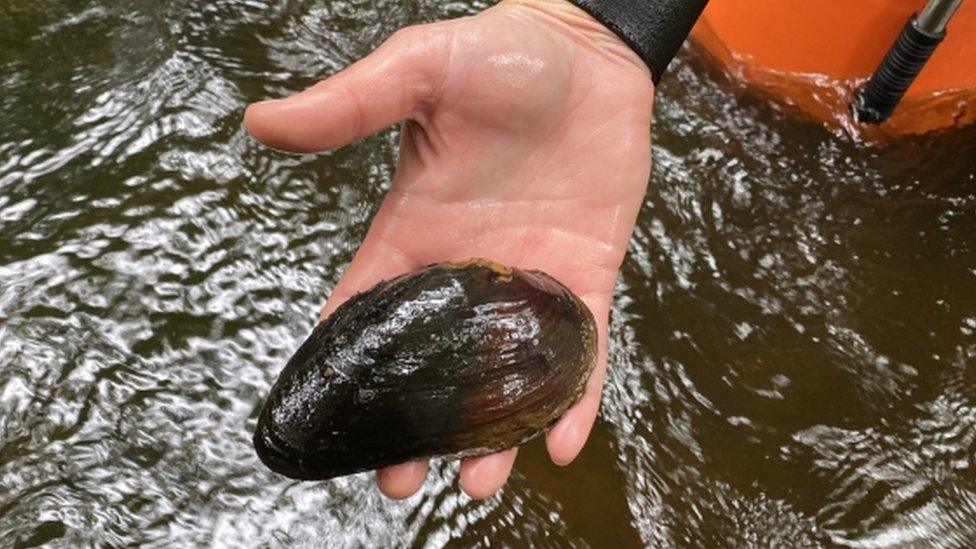Cumbrian freshwater mussels reproduce for first time in 13 years
- Published
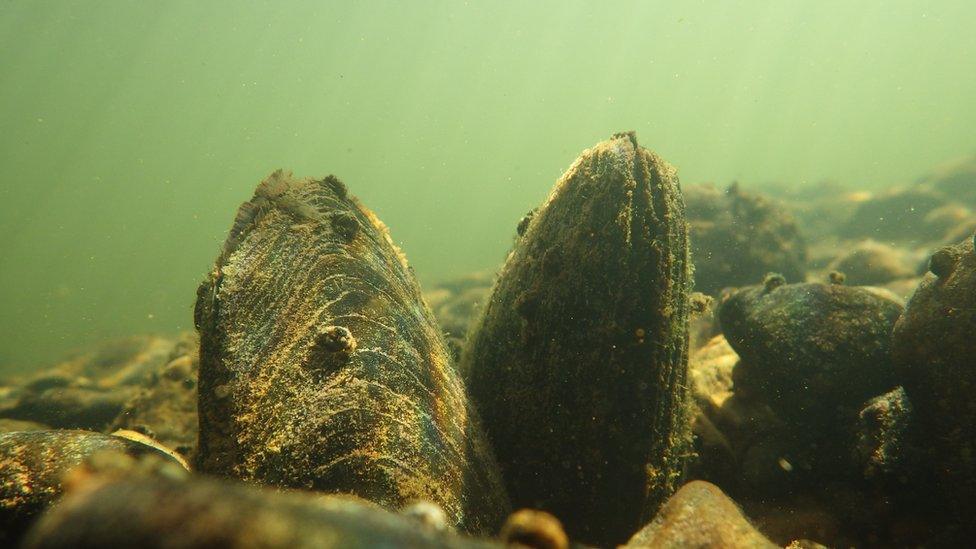
Freshwater mussels can live for about 120 years and improve water quality
Freshwater mussels at risk of extinction have started reproducing for the first time in 13 years.
Conservationists have been monitoring the River Irt which is home to the "critically endangered" population of about 300 mussels.
Only a handful of freshwater shellfish populations remain in England.
Chris West from West Cumbria Rivers Trust said it was "thrilling" and "heartening" to find evidence the species was reproducing.
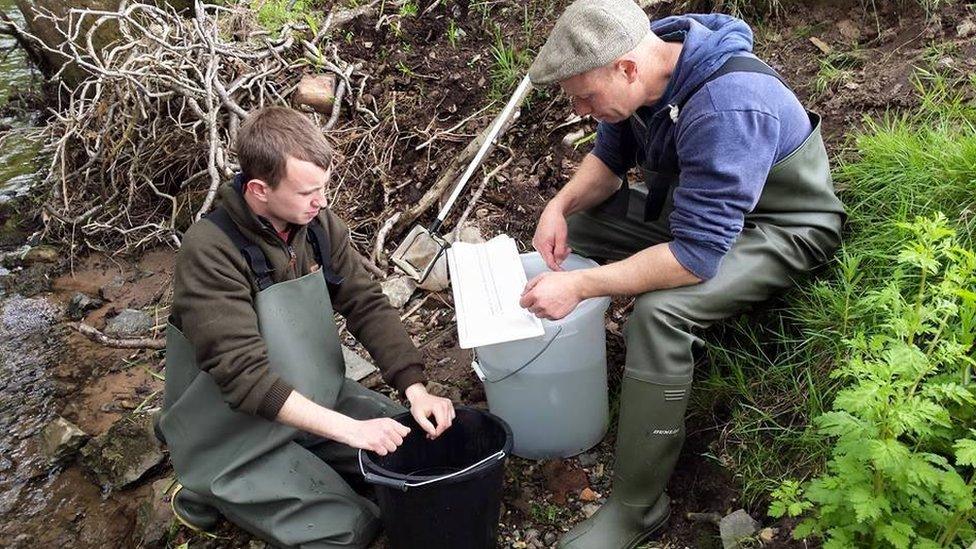
Conservationists carrying out encystment checks to see if the mussels are trying to reproduce
Populations have been affected by wildlife crime, habitat deterioration and declining water quality.
It is also not helped by the reproduction process which sees females release millions of glochidia, or larvae, into the water which have to be inhaled by fish to survive.
The glochidia clamp on to the gills of juvenile salmon or trout for about a year before landing on gravel where they bury and grow.
The process is called encystment and the last evidence of it happening in the River Irt, in the Wasdale Valley, was recorded by the Environment Agency in 2010.
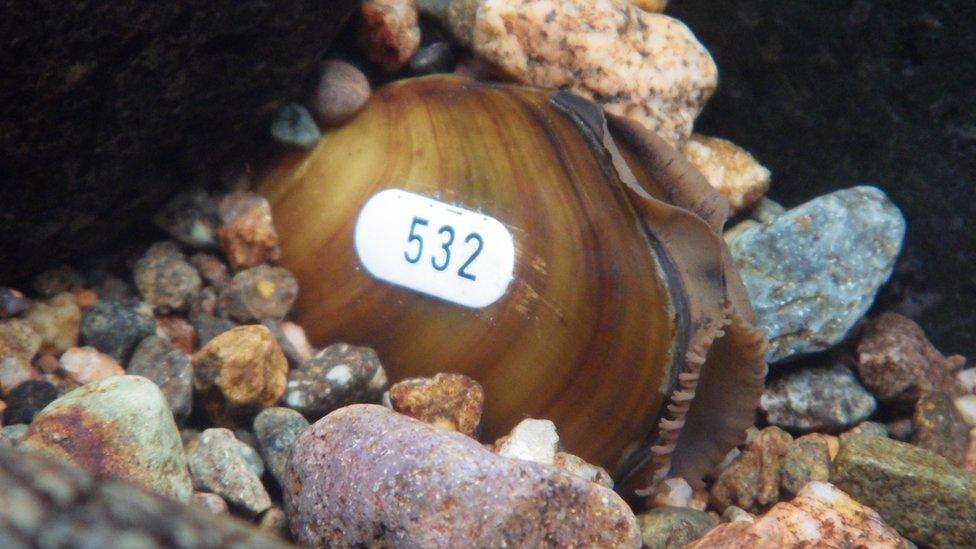
The team found one of the juvenile mussels it released which has survived two winters
To try and help the mussels, conservationists have been improving the habitat of the river by stabilising the river bank, planting willow and trees and adding boulders to the water.
They also released juvenile mussels, which had been bred in captivity, to help increase numbers.
"It's thrilling to find evidence that the population is reproducing. All our previous monitoring has found no evidence of reproduction, so this is heartening to see," Mr West said.
"It's also reassuring to see the mussels released into the Irt are thriving. These plus more that we plan to release over the coming years will significantly boost the population number."

Follow BBC North East & Cumbria on Twitter, external, Facebook, external and Instagram, external. Send your story ideas to northeastandcumbria@bbc.co.uk, external.
Related topics
- Published6 April 2023
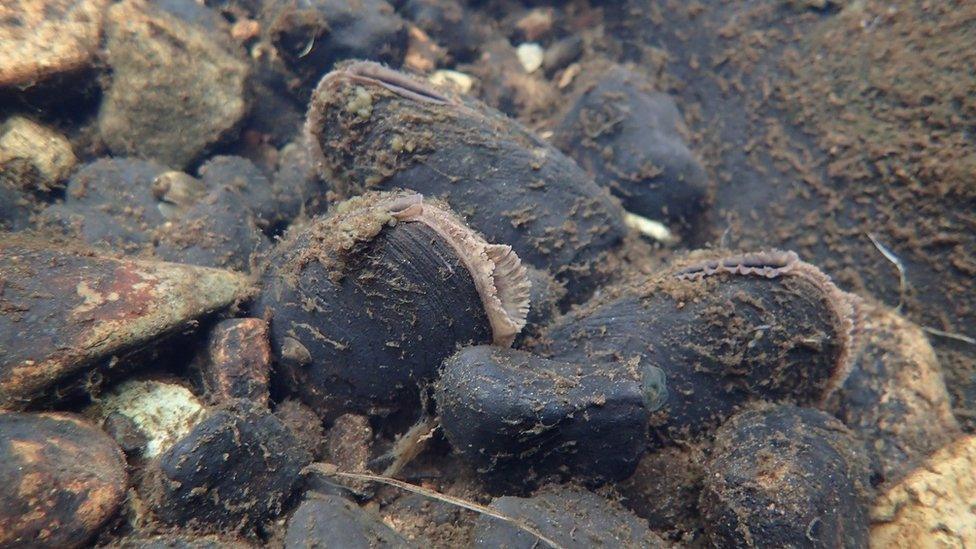
- Published4 April 2023
- Published3 August 2021
